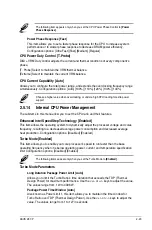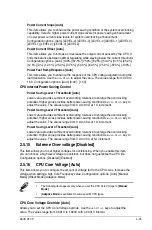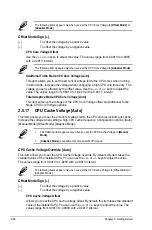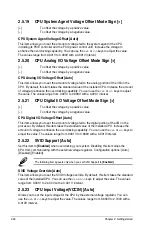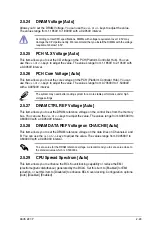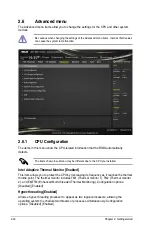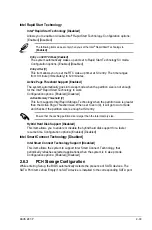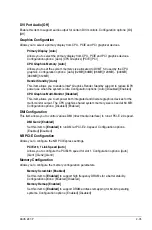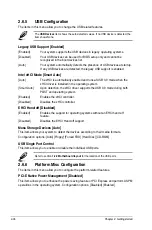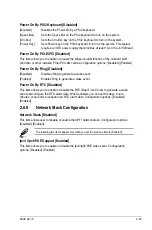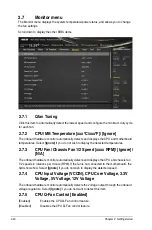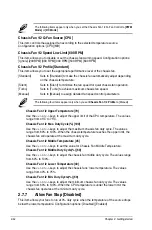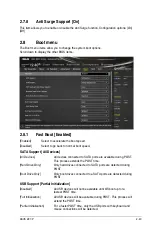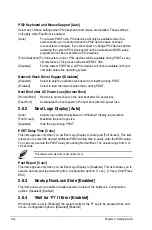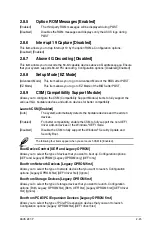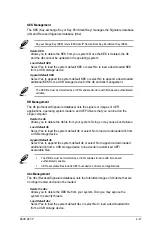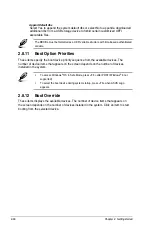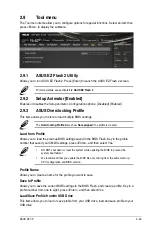
2.6.5
USB Configuration
The items in this menu allow you to change the USB‑related features.
The
USB Devices
item shows the auto‑detected values. If no USB device is detected, the
item shows None.
Legacy USB Support [Enabled]
[Enabled]
Your system supports the USB devices in legacy operating systems.
[Disabled]
Your USB devices can be used for BIOS setup only and cannot be
recognized in the boot devices list.
[Auto]
Your system automatically detects the presence of USB devices at startup.
If any USB devices are detected, the legacy USB support is enabled.
Intel xHCI Mode [Smart Auto]
[Auto]
The xHCI is automatically enabled and runs at USB 3.0 mode when the
xHCI driver is installed in the operating system.
[Smart Auto]
Upon detection, the xHCI driver supports the USB 3.0 mode during both
POST and operating system.
[Enabled]
Enables the xHCI controller.
[Disabled]
Disables the xHCI controller.
EHCI Hand-off [Disabled]
[Enabled]
Enables the support for operating systems without an EHCI hand‑off
feature.
[Disabled]
Disables the EHCI Hand‑off support.
Mass Storage Devices [Auto]
This item allows your system to detect the devices according to their media formats.
Configuration options: [Auto] [Floppy] [Forced FDD] [Hard Disk] [CD‑ROM]
USB Single Port Control
This item allows you to enable or disable the individual USB ports.
Refer to section
1.2.3 Motherboard layout
for the location of the USB ports.
2.6.6
Platform Misc Configuration
The items in this menu allow you to configure the platform‑related features.
PCI-E Native Power Management [Disabled]
This item allows you to enhance the power saving feature of PCI Express and perform ASPM
operations in the operating system. Configuration options: [Disabled] [Enabled]
2‑36
Chapter 2: Getting started


